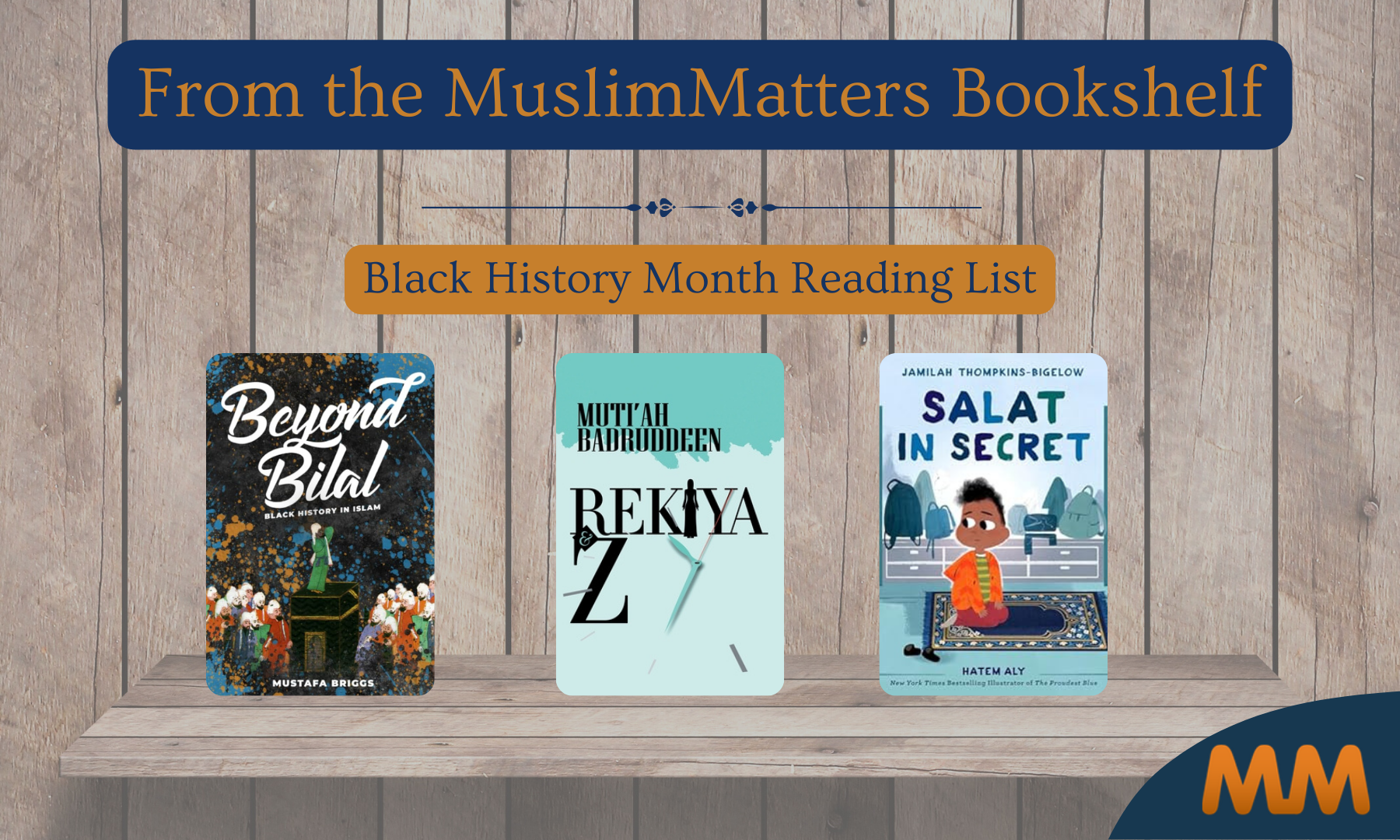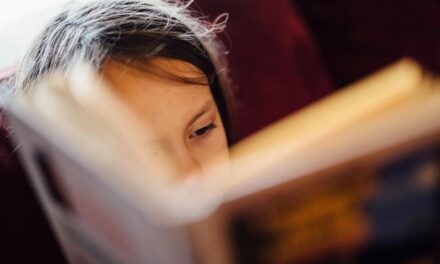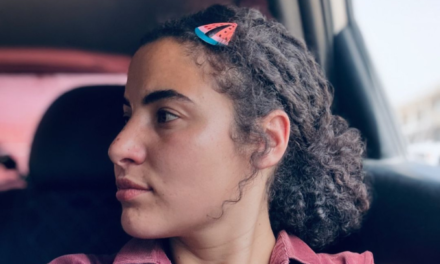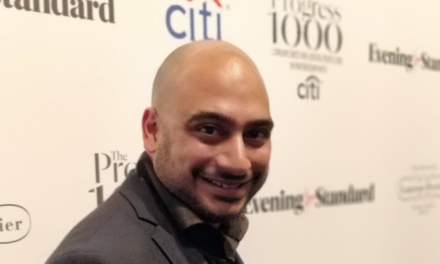Black Muslims are an integral part of our Ummah, contributing to our communities in every way. From Islamic scholarship to humanitarian workers, from voices of justice to beloved parents and aunties and uncles, Black Muslims continue to do incredible work that is often not recognized by the rest of us. This Black History Month, pick up some of these wonderful reads by Black Muslim authors and share them with your family, your friends, and your local libraries!
KIDLIT
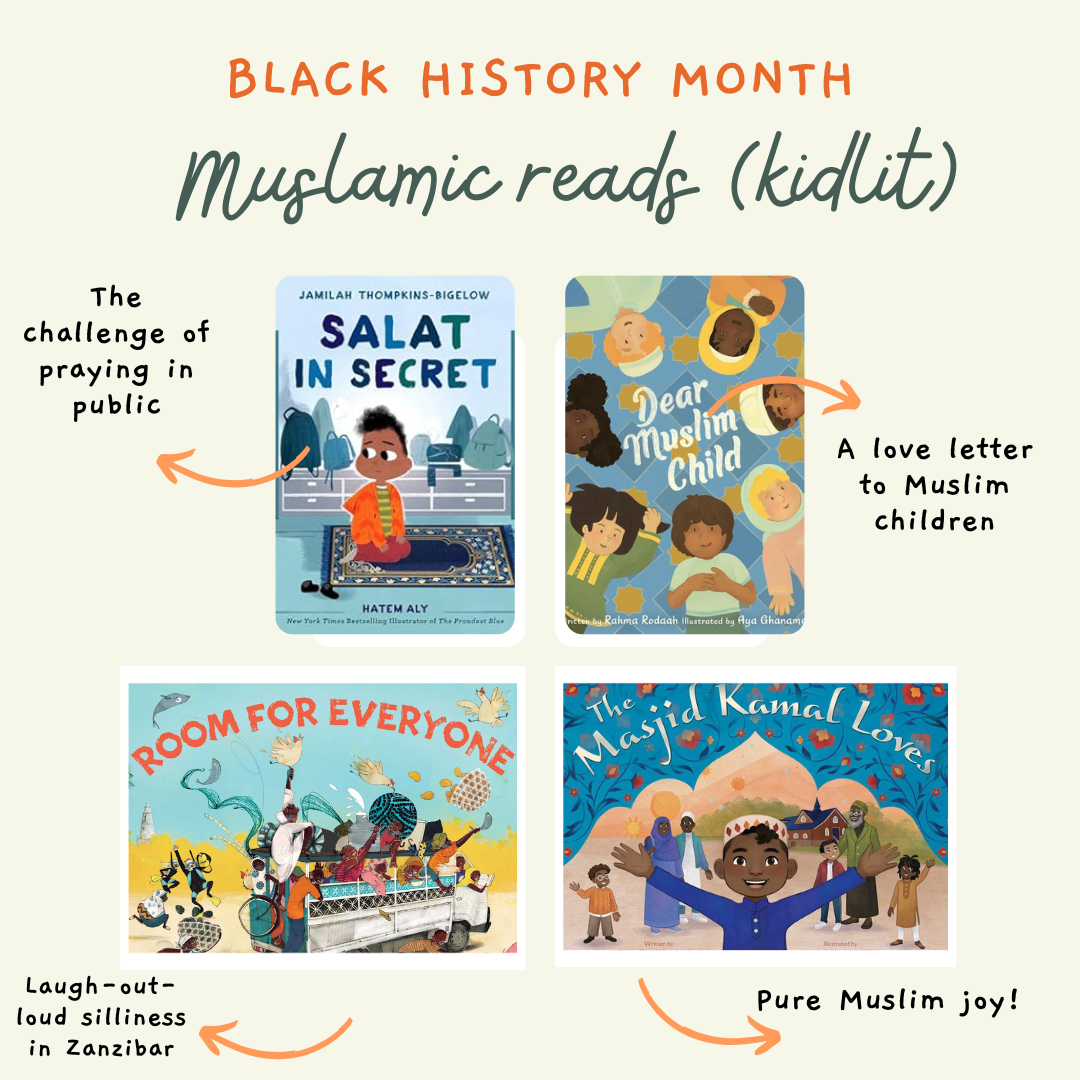
– “Salat in Secret” by Jamilah Thompkins-Bigelow
Salah is the very foundation of our lives as Muslims, and this gorgeously detailed picture book shares this value in an incredible way.
Muhammad receives his first real sujjaadah (prayer mat) at the age of 7, with his father’s words ringing in his ears: “Never delay salat.” But when Muhammad realizes that he has to pray at school… the challenge is a little more than he expected it to be. It is when he witnesses his father living up to his principles no matter what that he realizes what it truly means to make salat the ultimate priority.
This book is absolutely stunning in so many ways – an example of how to powerfully share the importance of salah with children.
– “Dear Muslim Child” by Rahma Rodaah
“Dear Muslim Child” is absolutely priceless: a literal love letter to every Muslim child, filled with love, light, and tenderness.
Rahma’s words are so powerful because in just a few lines, she is able to underscore everything from loving Allah  to the spiritual elements of wudhu to the importance of salah. She is able to acknowledge Muslim children’s fears of being teased and harassed, and at the same time empowers young readers to turn to Allah
to the spiritual elements of wudhu to the importance of salah. She is able to acknowledge Muslim children’s fears of being teased and harassed, and at the same time empowers young readers to turn to Allah  for strength.
for strength.
– “The Masjid Kamal Loves” by Ashley Franklin
There is nothing more captivating than pure #MuslimJoy in kidlit, and “The Masjid Kamal Loves” is one of the most wonderful examples of it!
From the friends he meets at jumu’ah, to playful splashing while doing wudhu, to the imam’s wisdom and the smiles of other believers – this book highlights the very essence of loving the masjid and its experiences. The text is simple yet sweet; it is the illustrations, with their vivid colors and incredible details, that truly bring this entire story to life. There’s even some niqabi representation at the end!
Beyond charming, this is the perfect book to use in a masjid storytime or give as an Eid gift.
– “Room for Everyone” by Naaz Khan
“Room for Everyone” by Naaz Khan, illustrated by Merce Lopez, is laugh-out-loud hilarious. This silly, rhyming story is set in Zanzibar, and is all about having the generosity of heart to ‘make room for everyone.’
The vibrant illustrations, the wonderful rhyming, and the message all combine to make a great read-aloud favorite. What I particularly loved about it was that it features a Muslim country and culture that is rarely ever even considered! Truly, this is a wonderful example of Black Muslim joy and representation.
ADULT FICTION
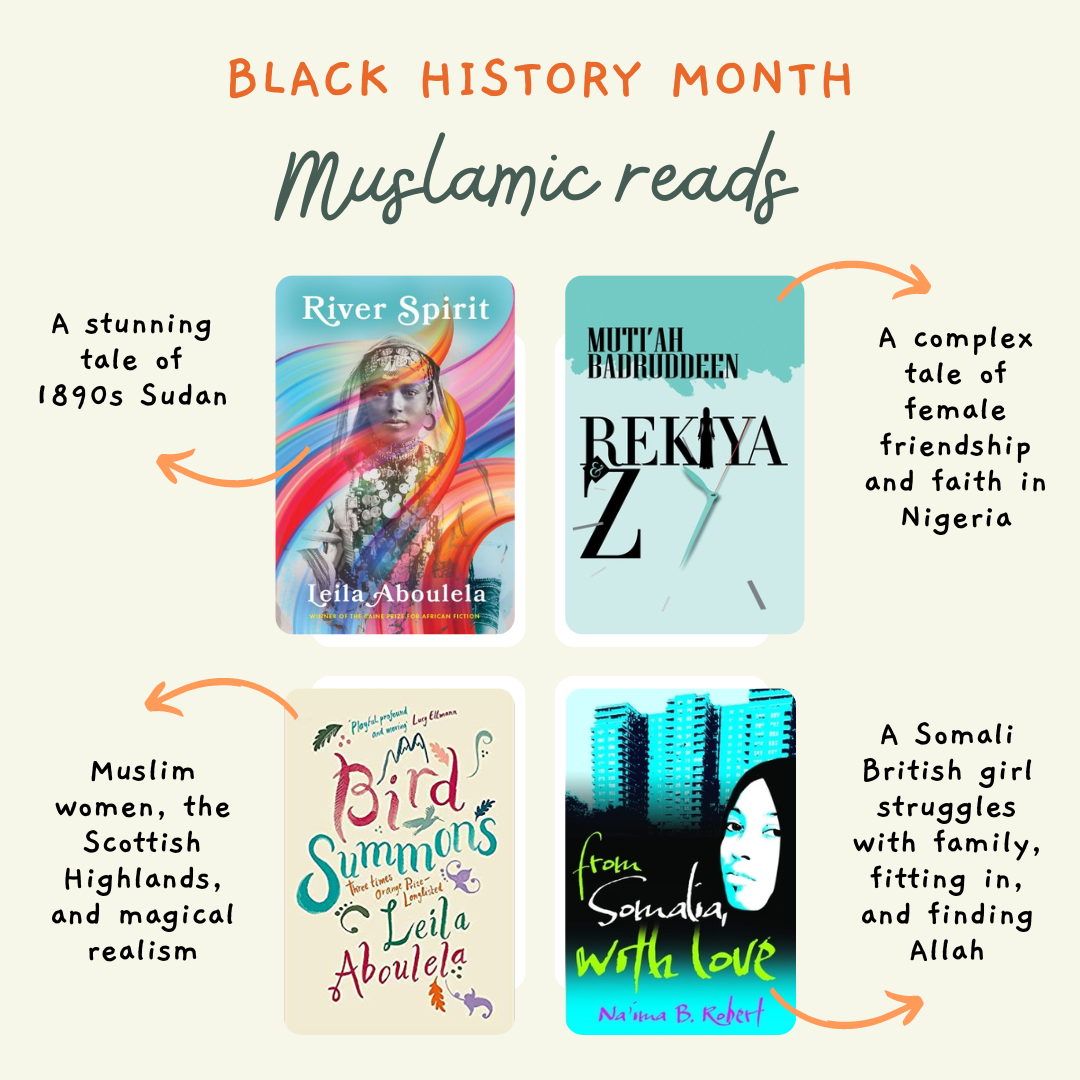
– “River Spirit” by Leila Aboulela
Leila Aboulela’s latest novel, “River Spirit,” is yet another example of brilliant, rich writing featuring characters and a setting unfamiliar to many.
The story opens in 1890s Sudan, where rumors of a man claiming to be the Mahdi turn into a revolution against Ottoman rule. Against this backdrop, we meet a wide cast of characters – most notably Akuany (later Zamzam), a village girl rescued by Yaseen, a young merchant from Khartoum who later becomes an ‘aalim from al-Azhar.
Akuany and Yaseen’s story – and the story of Sudan itself – is beautiful and painful, and we witness the many twists and unexpected turns of their journey through the eyes of many others: Musa, a fervent follower of the Mahdi; Yaseen’s mother Fatima and his wife Salha; Robert, a Scottish artist; and many others besides.
Aboulela’s writing is beyond stunning, and this unique approach to the narrative layers the book with incredible depth. History, human nature, politics, and more – Aboulela explores it all. The ending was unexpected and truly pulled at my heartstrings, and I was left with that beautiful achiness that signifies a story genuinely well-told (and a piqued curiosity to learn more about the historical events re. the Sudanese Mahdi).
– “Bird Summons“ by Leila Aboulela
“Bird Summons” is a strange, sometimes dreamy, often heavy, and yet deeply evocative read. It is perhaps one of the most unique Muslamic fiction I’ve yet read – magical realism, with Muslim characters and deeply meaningful spiritual themes.
Readers of Aboulela’s previous books will recognize the emotional weight that her characters bear and navigate. In this book, we follow three very different Muslim women: young, beautiful, tragic Iman – widowed and divorced multiple times already; Moni the martyr-mother, clinging to her disabled son; and Salma, middle-aged and secretly resentful of her seemingly charmed life.
The three women embark on a road trip to the Scottish hinterlands, in search of Lady Zainab Evelyn Cobbold’s grave. Along the way, they must contend with one another and with themselves; the Hoopoe bird, of Qur’anic importance, appears with mysterious fables and the keys to their salvation. Aboulela’s words are simple and yet utterly powerful; she entwines the intimately spiritual and brutally human in starkly beautiful prose. Her exploration of faith, identity, and rising from personal tragedy is never comfortable and yet illuminating.
– “Rekiya & Z“ by Muti’ah Badruddeen
“Rekiya & Z” is a story of the complicated friendship between two Nigerian Muslim women, Rekiya & Zaynunah, who come from dramatically different backgrounds but had bonded deeply at school. Now, as adults who have drifted apart, the two women find themselves pushed back together, and must unearth one another’s histories and navigate their new relationship.
The author does an incredible job of weaving together Islamic values throughout, making it relevant but not preachy – even and especially in the story arc of a “non-religious” character. She packs in so many elements: faith, niqab, polygamy, prejudice, trauma, grief, and loss.
– “From Somalia, With Love“ by Na’ima B. Robert
Safia Dirie is a teenage girl living in East London with her mother, Hoyo, and two older brothers, Ahmed and Abdullahi. Though she was born in Somalia, she doesn’t really remember it — Safia’s a London girl, through and through. But now, after 12 long years, her father, Abo, has returned to the family from war-torn Mogadishu. Safia knew things would change, but nothing could have prepared her for the reality of dealing with Abo’s cultural expectations. Or that Ahmed, her favorite brother, would start to run wild. And she herself certainly didn’t expect to find her cousin Firdous’ party-girl lifestyle so tempting.
Safia must come to terms with who she is — as a Muslim, as a teenager, as a poet, as a friend, but most of all, as a daughter to a father she’s never known. Rooted in Somali and Muslim life, this poignant and beautifully written novel about one girl’s quest to find her own place in the world strikes a chord with young readers everywhere.
ADULT NON-FICTION
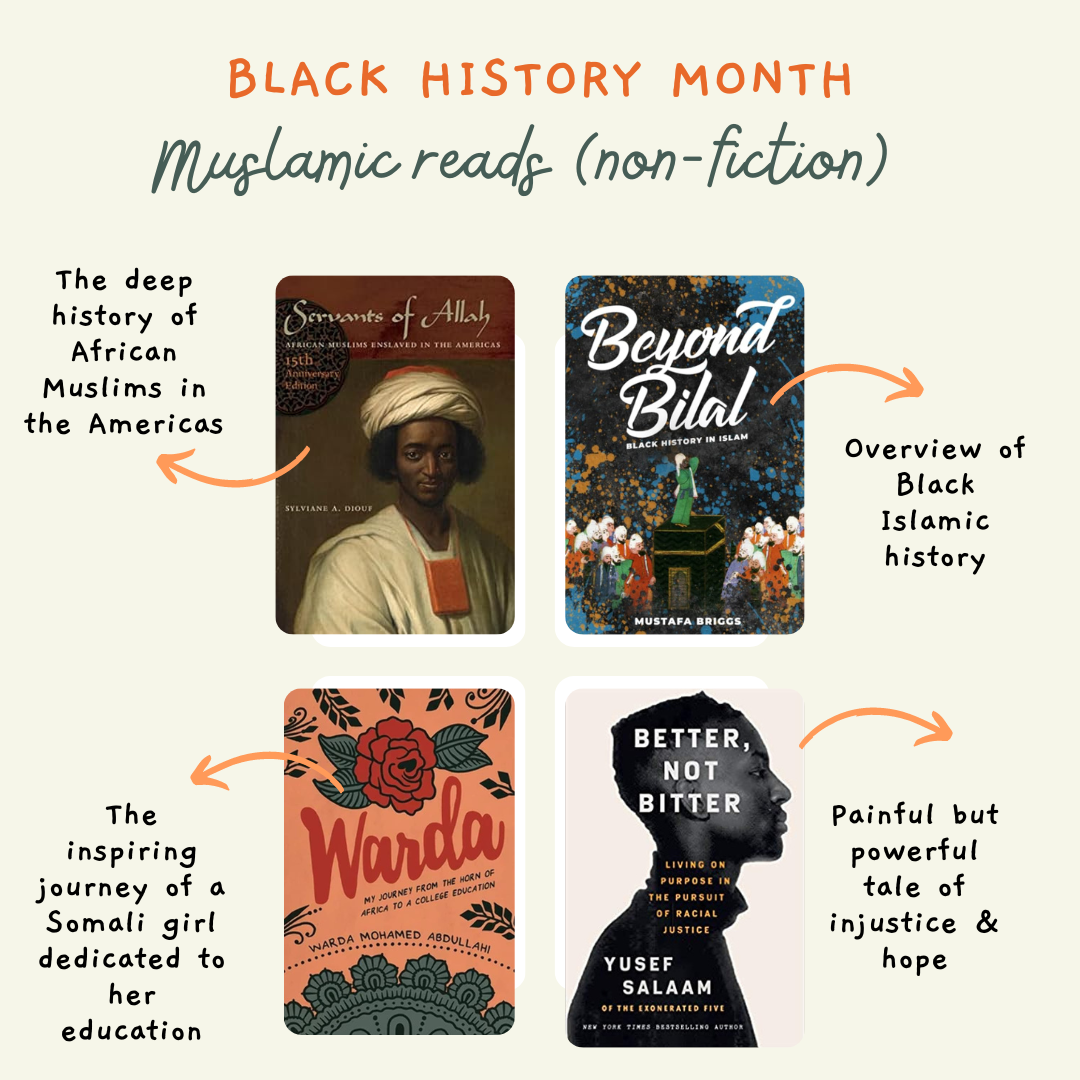
– “Servants of Allah: African Muslims Enslaved in the Americas“ by Sylviane Diouf
Dr Sylviane A. Diouf’s book “Servants of Allah: African Muslims Enslaved in the Americas” tracks the journeys and experiences of African Muslims who found themselves shipped aboard slave-trafficking vessels and taken to the other side of their known world. From their induction into the Transatlantic slave trade, to their determination to uphold the five pillars of Islam – regardless of their circumstances – to the structure of the enslaved Muslim community, their prized (and dangerous) literacy, and their never-ending resistance against slavery, Diouf illustrates in incredible detail the powerful and painful experiences of enslaved African Muslims, and the legacy that they left behind in the Americas.
(Read a more detailed review here.)
– “Beyond Bilal“ by Mustafa Briggs
“Beyond Bilal: Black History in Islam” by Mustafa Briggs is an easy-to-read introduction to the richness of Black history as it is intertwined with Islamic history.
The book begins with a discussion on the Blackness of figures such as Luqman and Musa  , and moves on to how Islam was introduced to Africa, the glorious eras of Islamic African dynasties, and finally to Islam in America. I especially enjoyed the summarized history of Islamic African empires, and the brief introduction to notable West African scholars whose names I’ve come across more recently, such as Shaykh Ibrahim Niasse and Sh Hassan Cisse. The final chapter on female African Islamic scholars was also quite powerful.
, and moves on to how Islam was introduced to Africa, the glorious eras of Islamic African dynasties, and finally to Islam in America. I especially enjoyed the summarized history of Islamic African empires, and the brief introduction to notable West African scholars whose names I’ve come across more recently, such as Shaykh Ibrahim Niasse and Sh Hassan Cisse. The final chapter on female African Islamic scholars was also quite powerful.
– “Warda: My Journey from the Horn of Africa to a College Education“ by Warda Mohamed Abdulahi
This memoir about a Somali girl’s journey across the Horn of Africa to America, fulfilling her dream of getting an education, truly stands out!
Unlike so many “inspiring stories” written by people of Muslim backgrounds, filled with anger towards their cultures/ family/ Islam and adoration of the West as a savior, Warda Abdullahi’s memoir is filled with love and respect towards her family, her culture, and Islam.
She makes a point of providing historical context to her family’s story, praising her grandfather for raising her and crediting her father for his determination to get her the best education possible. Even when topics like polygamy or FGM come up, Warda never falls into blaming Islam or trashing her culture – she recognizes the horrors of FGM gravely, without comparing her culture to the West.
Most importantly, her dedication to Islamic values holds throughout: from her fasting in Ramadan despite her massive school workload and Islamic center volunteering and family responsibilities; to maintaining her hijab staunchly & refusing to touch student loans because of the riba involved. In the end, the barakah is clear: through her relentless determination and hard work, she is able to cover almost the entire cost of her college tuition through scholarships alone.
– “Better, Not Bitter“ by Yusef Salaam
“Better, Not Bitter” by Dr. Yusef Salaam is the autobiography of one of the Exonerated Five: five young men (four of them African American, one of them Latino) – boys, at the time – who had been arrested, charged, and convicted in 1989 for raping and assaulting a white female jogger in Central Park. Decades later, the real rapist confessed, and the men were finally freed. Dr. Salaam’s book won the 2021 Muslim Bookstagram Awards for its powerful tale of seeking justice, holding onto his faith in Allah  , and working through the trauma of racism and prison.
, and working through the trauma of racism and prison.
“Better, Not Bitter” stands out not just as a memoir of an injustice that epitomized America’s systemic racism, but as so much more: a glimpse of Yusef’s life before he was unjustly imprisoned; his mother’s strong, gentle guidance and unending advocacy for her son and others in dire straits; a spiritual journey of choosing not to allow one’s soul to be imprisoned even if one’s physical body is. Gratitude, self-discipline, introspection, education, and determination to “live with purpose” are recurring themes in Dr. Salaam’s book.
(Read a more detailed review here.)
